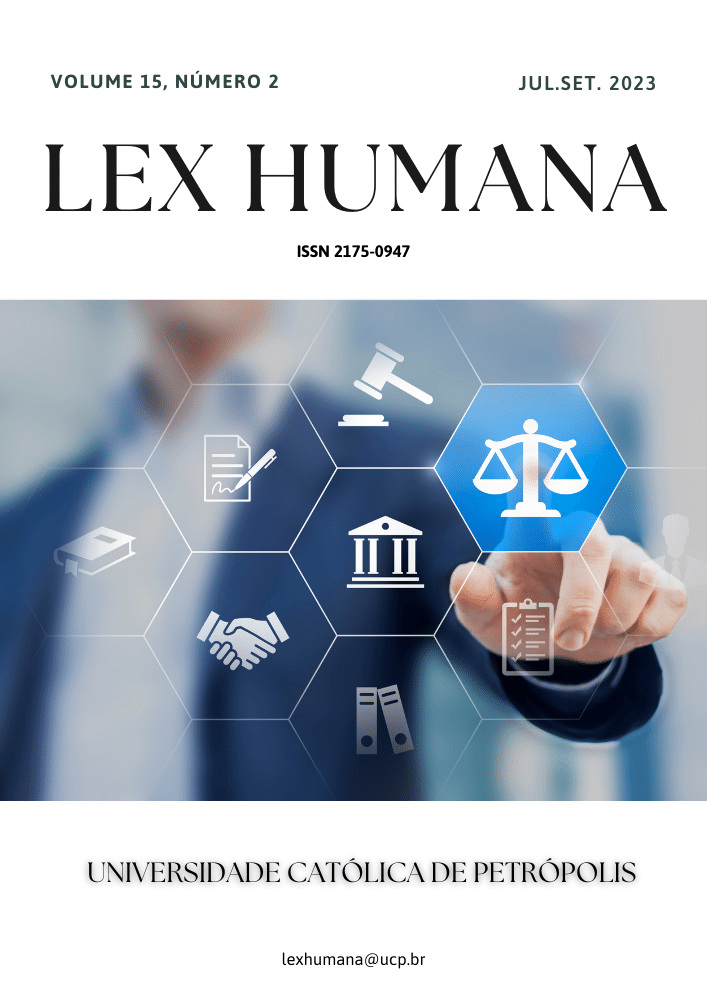Abstract
Military aggression by Russia against Ukraine continues to destroy Ukraine's economy, social, transportation, and energy infrastructure, and the lives of its people, demolishing entire cities and villages and causing irreparable losses to the Ukrainian people and ecosystem. Ukraine needs to implement a massive recovery program, including effective anti-corruption reform, to rebuild the country after the war and integrate its economy into the European space. The article aims to study successful experiences of anti-corruption reforms and outline specifics of their application in Ukraine after the war's end. Methodology. The study uses an analytical-bibliographic method to examine scientific literature on anti-corruption reforms, as well as induction, deduction, analysis, synthesis of information, systemic-structural, comparative, logical-linguistic methods, abstraction, idealization for studying and processing data, and an online survey conducted by the authors of the study to practically clarify the most critical issues related to anti-corruption policy in Ukraine and the world. Results. The study has identified the main theoretical aspects of the anti-corruption experience and examined the views of scholars and department heads of local self-government bodies on the key features of this issue.
References
Becker, T. et al. (2022). A Blueprint for the Reconstruction of Ukraine, CEPR Press, London. https://cepr.org/system/files/2022-06/BlueprintReconstructionUkraine.pdf.
Carloni, E. & Paoletti, D. (2022). Anti-Corruption Models and Experiences The Case of the Western Balkans. FrancoAngeli s.r.l., Milano, Italy. Pubblicato con licenza Creative Commons Attribuzione-Non-Commerciale-Non opere derivate 4.0 Internazionale (CC-BY-NC-ND 4.0). http://lepa.unipg.it/wp-content/uploads/2022/08/D2-APTAMODAcademicPublication_Publisher-Franco-Angeli-Open-access_compressed.pdf.
Ceschel, F., Hinna, A. & Homberg, F. (2022). Public Sector Strategies in Curbing Corruption: A Review of the Literature. Public Organization Review, 22. 571–591. https://link.springer.com/article/10.1007/s11115-022-00639-4.
Dabrowski, M., Dominguéz-Jiménez, M. & Zachmann, G. (2020). “Ukraine: Trade Reorientation from Russia to the EU”, Bruegel Blog, 13 July. https://bruegel.org/2020/07/ukraine-trade-reorientation-from-russia-to-the-eu/.
European Commission, (2022). Commission Opinion on Ukraine’s Application for Membership of the European Union. Communication from the Commission to the European Parliament, the European Council and the Council, Brussels, 17 June, COM (2022) 407, Final. https://ec.europa.eu/neighbourhood-enlargement/document/download/c8316380-6cb6-4ffd-8a84-d2874003b288_en?filename=Ukrainepercent20Opinionpercent20and percent20Annex.pdf.
Ferguson, I. (2018). Between news spheres of influence: Ukraine’s geopolitical misfortune. Geopolitics, 23, 2, 285–306. https://www.tandfonline.com/doi/abs/10.1080/14650045.2017.1402299?journalCode=fgeo20. https://doi.org/10.1080%2F14650045.2017.1402299.
Jarábik, B., Sasse, G., Shapovalova, N. & Waal, T. D. (2018). The EU and Ukraine: taking a breath. Carnegie Endowment for International Peace, 27. http://carnegieendowment.org/2018/02/27/eu-and-ukraine-taking-breath-pub-75648.
Kadej, L. (2019). Co dalej z gazociągiem Polska-Ukraina? Inwestycja wciąż bez rozstrzygnięć. Forsal, 28. https://forsal.pl/artykuly/1431631,co-dalej-z-gazociagiem-polska-ukraina-inwestycja-wciaz-bez-rozstrzygniec.html.
Lennon, O. & Kable, K. (2020). Six reasons the “opposition platform” won in Eastern Ukraine. https://www.wilsoncenter.org/publication/kennan-cable-no-45-six-reasons-the-opposition-platform-won-eastern-ukraine.
Matera, P. (2022). Economic Incentives as Tools of Foreign Policy: Polish Engagement in Ukraine. European Review, 30, 1, 24-42. https://www.cambridge.org/core/journals/european-review/article/economic-incentives-as-tools-of-foreign-policy-polish-engagement-in-ukraine/A108B8445278A7309C522522248E92E2#article. https://doi.org/10.1017/S106279872000109X.
Melkozerova, V. (2023). Reporting Corruption in a Time of War: The Ukrainian Journalists’ Dilemma. Politico, 26 January. https://www.politico.eu/article/reporting-journalist-corruption-war-ukraine-dilemma/.
Melkozerova, V. (2023). Reporting Corruption in a Time of War: The Ukrainian Journalists’ Dilemma. Politico, 26 January. https://www.politico.eu/article/reporting-journalist-corruption-war-ukraine-dilemma/.
Nekrasenko, L., Pittman, R., Doroshenko, O., Chumak, V. & Doroshenko, A. (2019). Grain logistics in Ukraine: the main challenges and effective ways to reach sustainability. Economic Annals-XXI, 178, 7–8, 70–83. http://ea21journal.world/index.php/ea-v178-6. DOI: https://doi.org/10.21003/ea.V178-06.
Olekseyuk, Z. & Baliesteri, E. (2018). Trade liberalization gains under different trade theories: A case study for Ukraine. Empirica, 45, 507–542. https://link.springer.com/article/10.1007/s10663-017-9371-9. https://doi.org/10.1007%2Fs10663-017-9371-9
Petrov, R. (2018). The impact of the EU-Ukraine association agreement on constitutional reform and judicial activism in Ukraine. Review of Central and Central East European Law, 43, 2, 99–115. https://brill.com/view/journals/rela/43/2/article-p99_99.xml. https://doi.org/10.1163%2F15730352-04302001.
Popova, M. & Beers, D.J. (2020). No revolution of dignity for Ukraine’s judges: judicial reform after the Euromaidan. Demokratizatsiya the Journal of Post-Soviet Democratization, 28, 1, 113–142. https://muse.jhu.edu/article/747827.
Rabinovych, M. (2022). EU-Ukraine “deep” trade agenda: the effectiveness and impact perspectives. International Politics, 1. https://link.springer.com/article/10.1057/s41311-022-00384-x.
Rabinovych, M. (2019). EU’s development policy vis-à-vis Ukraine after the Euromaidan: Securitization state-building and integration. East European Politics, 35, 3, 322–350. https://www.tandfonline.com/doi/abs/10.1080/21599165.2019.1604338?journalCode=fjcs21. https://doi.org/10.1080/21599165.2019.1604338
Reznik, O., Bondarenko, O., Utkina, M., Klypa, O. & Bobrishova, L. (2023). Anti-Corruption Transformation Processes in the Conditions of the Judicial Reform in Ukraine Implementation. International Journal for Court Administration, 2, 14, 1. https://doi.org/10.36745/ijca.400. https://www.researchgate.net/publication/370038987_Anti-Corruption_Transformation_Processes_in_the_Conditions_of_the_Judicial_Reform_in_Ukraine_Implementation.
Sydorenko, S. (2022). Ukraine Failing Its Own Strategy to Meet EU Requirements Swiftly. European Pravda, 14 November. https://www.eurointegration.com.ua/eng/articles/2022/11/14/7150585/.

This work is licensed under a Creative Commons Attribution-NonCommercial-NoDerivatives 4.0 International License.
Copyright (c) 2023 Lex Humana (ISSN 2175-0947)
